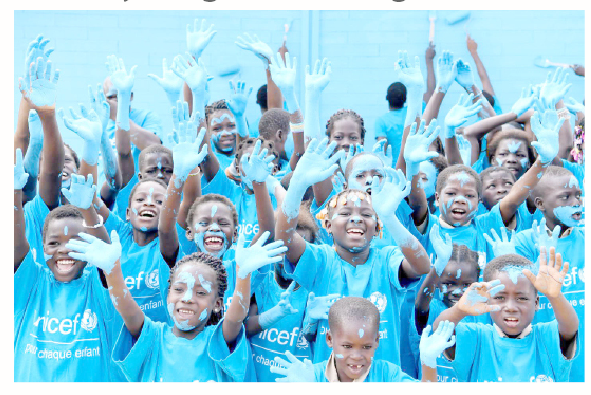The United Nations Children’s Fund, (UNICEF) has planned to support over 10 million children to access formal and non-formal education by 2027.
UNICEF Communication Specialist, Dr. Geoffrey Njoku, who disclosed this while speaking on the new Country programme (2023-2027) and the status of implementation of the Child Rights Law 2003 in states, also said that the organisation supported 1.5 million girls to enter schools using a new evidence-based approach.
Speaking in Kano during a media dialogue, Njoku said five million children also continued learning during the COVID-19 pandemic, noting that this was achieved with the aid of radio, television and home-based materials.
LEADERSHIP reports that the vision of the 2023-2027 programme for Nigeria, is to ensure that the rights of every child in Nigeria, especially the most excluded, survive, thrive, learn, be protected and develop to his or her full potential.
It also hopes to free the children from poverty in a safe and sustainable climate and environment.
He further stated that the five-year strategic plan which began in January is to help Nigerian children who are left behind in developmental strides meet up with their counterparts in other parts of the world.
On what the agency has achieved in the said period in health, Njoku said UNICEF has supported Nigeria in the vaccination of 30 million children in the last five years.
The number of vaccinated children is part of the organisation’s country programme result for 2018-2022, he said.
“Fifty-eight million children were vaccinated against polio, also achieved zero dose strategy in 100 local government areas to reach underserved children across 18 states. Twenty-two million children also received two doses of Vitamin A in 2022,” he said.
Njoku also said that the organisation facilitated birth registration for 7.4 million children under the age of five, while 2.8 million children living in conflict affected areas received psychosocial support.
He added, “By 2027, we want to have over one million additional children immunised (zero-dose), 15,000 additional community health workers trained, and over 1,700 Primary Health Care facilities in 14 states meet PHC minimum standards.
“We also want to have state level and national capacities built to prepare and respond to public health emergencies.
“On nutrition, we project that we would have 50 million children aged six to 59 months receive Vitamin A twice a year.
“Also, 12.5 million women (50 percent of pregnant women) receive more than 90 iron-folic acid tablets or micronutrient supplements in 19 states,” Njoku said.





